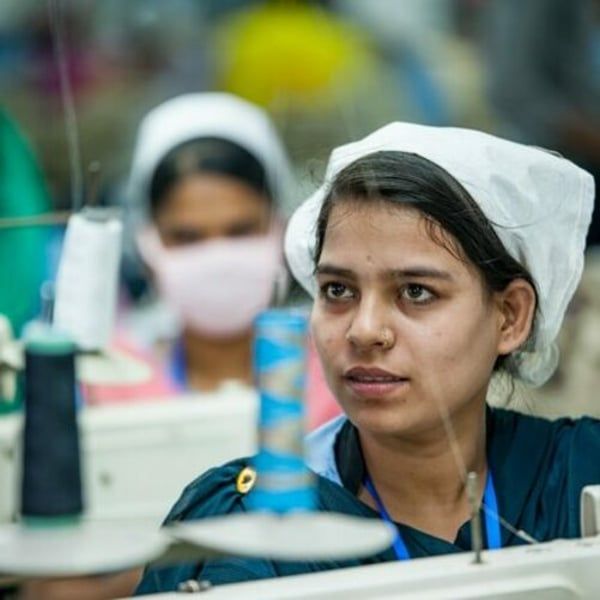Translated by
Nicola Mira
Published
August 1, 2024
Inflation is hitting Bangladesh hard. Prices have risen by around 10% a month for a year, in a country where half the population already lived on less than a dollar a day. Trade unions are demanding food aid for garment workers, while NGOs are denouncing repressive measures against unions and calling for a further increase in the minimum wage.
In June, several garment workers' unions held a press conference in the country's capital, Dhaka, to call on the government to help workers, whose wages no longer allow them to buy basic daily items. Last year, the Prime Minister said he would consider such measures, but parliament rejected them this summer.
The situation is a cause for concern for IndustriALL, which has called for the mandatory implementation of the new minimum wage, negotiated last year amid painful and bloody conflicts. Following mass demonstrations, repeated negotiations led to the new monthly wage being set at BDT 12,000 (US$105), up from BDT 8,000 (US$67).
A wage that unions considered insufficient by the end of 2023 and stressed that the wage increase was not enough to offset the impact of inflation in previous years. Manufacturers, on the other hand, claimed that the wage increase risked undermining the competitiveness of Bangladesh's textile industry, which accounts for 85% of the country's exports but whose export revenues fell sharply last year.
Bangladeshi garment workers’ wage demands are also inextricably linked to other problems in the country. After suffering a devastating cyclone in May, Bangladesh was recently hit again by severe weather that caused widespread flooding. In July, students staged large demonstrations in Bangladesh to protest against the 30% quota of public jobs reserved for children of veterans of the 1971 war of independence – a policy that, for a section of the population, only benefits supporters of the current government.
Withdrawal of trade union rights
In 2023, Bangladesh marked the 10th anniversary of the tragedy caused by the collapse of the Rana Plaza textile factory. International pressure following the disaster forced the country to adopt a series of measures to improve the working conditions and safety of workers, mainly to satisfy Western brands and their consumers.
However, in recent months, NGOs have warned that the country has gone backwards, particularly on trade union rights. IndustriALL reported that some 43 criminal proceedings have been launched against 20,000 people and that more than 100 workers have been imprisoned following the minimum wage protests.
“Many have lost their jobs and have been blacklisted by their employers, so they will have difficulty finding other work,” the union said, adding that “unions, including our affiliated organisations, demand that harassment of workers cease immediately, that all criminal charges be dropped and that workers be adequately compensated, as well as the families of those who have been killed by the police.”
Positions as a negotiating tool
Amnesty International has denounced “arbitrary trials of garment workers” and has drawn attention to 35 criminal proceedings initiated following complaints filed by companies producing for major international brands. According to a preliminary report, charges could be brought against up to 44,450 workers, with some producers using the charges as a bargaining tool.
“Interviewed by Amnesty International, many local union representatives have said that the failure to disclose the names of the thousands of workers demonstrating against the criminal charges is being widely used as a threat and potential justification for dismissals, and to further intimidate factory workers,” Amnesty said. “The same tactic is also being used to reject any potential claims for damages and compensation from workers following the demonstrations. This has acted as a deterrent to union representatives and organisations defending workers’ rights, who have been silenced for fear of being arrested, jailed or imprisoned,” Amnesty added.
Bangladesh is the second-largest garment supplier to the European Union and the third-largest to the United States. In 2023, the country's exports to these two regions fell by a quarter. The decline was seen as a normalisation, after exports rose significantly in 2022, but it is also a cause for concern for a country where 40% of industrial jobs are in the textile sector.
Copyright © 2024 FashionNetwork.com All rights reserved.












